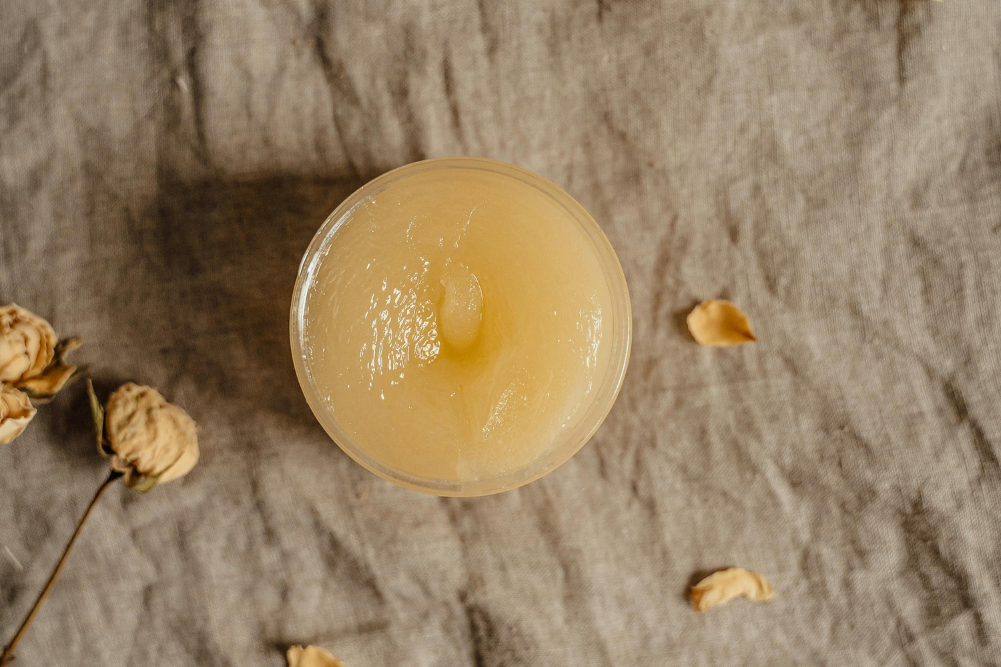How to stay beautiful this winter
Our bodies crave light, fresh foods during summer, while during winter we’re more partial to hot meals and stodgy comfort foods. According to traditional Chinese medicine, the body needs warm foods during the cold months to boost chi and support immune health, but that’s not the only benefit of warming foods. Soups and stews made with root and sea vegetables also help support the kidneys, which are the organs most under pressure when the temperature drops. As well as everything from detoxifying the blood and regulating your water and electrolyte levels to making hormones and balancing chemicals in the body, the kidneys also provide the body with energy and warmth.
As we head towards the cooler months, it’s a great time to think about gently cleansing the kidneys for a pre-season boost to help eliminate toxins and balance the body. Note the word “gentle”: the body needs to be fed and nourished during winter, and intense detoxing should only be undertaken in warmer months. That said, late autumn is the perfect time to take advantage of a mini-detox using cleansing herbs. When the kidneys aren’t supported or are sluggish in their functionality, it can manifest via skin problems including skin dryness and breakouts, which are exacerbated by harsh winter climates and over-air-conditioned environments.
Soups and stews made with root and sea vegetables also help support the kidneys, which are the organs most under pressure when the temperature drops.
Loads of herbs can be used to support the kidneys and remove toxin accumulations, including dandelion leaf and root, marshmallow root, parsley root, cleavers and uva ursi, as well as green foods like barley grass and spirulina (seek a naturopath’s advice before taking herbs or supplements).
Eating seasonal produce and “warm foods” such as hearty soups and stews, seasonal vegetables, cooked celery with seaweeds such as arame, hijiki, nori and wakame also supports the body during colder months. Other foods that support good kidney function are watercress, endive, asparagus, chicory root, miso, quinoa, rye, amaranth, cabbage, red, purple and black beans (especially adzuki beans), root veg, mushrooms, buckwheat, beets, kuzu root, chestnuts, sesame, duck, quail, pheasant, miso, tempeh and berries.
Also include pungent herbs such as ginger, garlic and turmeric in winter dishes to gently heat the body and stimulate circulation. Garlic has the added benefit of fighting both bacterial and viral infections and breaking down mucus caused by winter colds. Swap caffeinated beverages for dandelion tea to support your liver, and use lemongrass, ginger and lemon. Keep up your green smoothies during autumn and winter, but drink them around midday rather than for breakfast, as that is too cooling for kidney health.
“Wet foods, like stews, soups and broths full of mineral-rich vegetables, are much better for the kidneys than stodgy foods like breads, cakes and pies, which are not easily digested, interfere with digestion and contribute to imbalances,” says naturopath Alison Cassar. “Wet foods nourish, cleanse and hydrate the body and the skin … [Also,] too many animal products can congest the liver and therefore the skin, so eat them in moderation.”
A great way to moisturise the skin from the inside out is to boost your intake of omega-3 fatty acids: eat lots of coldwater fish such as salmon and sardines, and add flaxseeds, chia seeds and walnuts to your breakfast cereal. Green, leafy veg are good as well. Also increase your intake of pre- and probiotics found in fermented foods to help support good gut flora and boost your immunity. This will not only help fight off germs in the colder months but will also support your gut and therefore your skin, too.
Increase your intake of pre- and probiotics found in fermented foods to help support good gut flora.
Drink as much filtered water as you would on a hot summer’s day to assist the liver and kidneys in flushing out toxins and keeping the body and skin hydrated. A splash of lemon juice in warm water is a great kidney- and liver-cleansing morning pick-me-up, which also gives the body a dose of protective vitamin C.
There are other ways, too, that you can support your kidneys and boost your skin health during winter. You might not know this, but the kidneys are connected to the adrenal glands, so reducing your stress levels not only helps protect the kidneys from imbalance but also keeps skin looking healthier and more radiant. Getting a good amount of quality sleep is also important for healthy hormones and glowing skin.
It’s important as well to increase levels of vitamin C and zinc for immunity. Eat foods rich in these nutrients. For dry and scaly skin, evening primrose oil can be very helpful, but it has to be balanced with omega-3 oils and needs to be at a dose of 500–600g of GLA to be effective. It can also be used topically.
Caring for your skin topically is also vitally important during winter. Why not try ditching the soap in favour of cleansing with unrefined vegetable or nut oils, such as coconut, olive or walnut oil? Excellent for all skin types, oil washes restore the lipid balance (fats and oils) to fight dryness and dehydration. Simply massage the oil into your skin and rinse well with a warm, damp face cloth.
Getting a good amount of quality sleep is important for healthy hormones and glowing skin.
Regular, very gentle exfoliation also helps stimulate a sluggish complexion, remove toxins and promote cellular renewal. A mixture of fine oatmeal with yoghurt works well, as the lactic acid in the yoghurt helps remove dead skin cells and toxins, while pink clay mixed with yoghurt also makes a lovely skin-refining and detoxifying mask. You can also try making nourishing and antioxidant-rich fresh-food masks using ingredients such as cooked pumpkin and carrots. For a brightening mask, blend winter fruits such as pears, oranges and apples and make the most of their skin-smoothing alpha-hydroxy acids.
To nourish and moisturise, try massaging your clean face with cold-pressed vegetable oils such as rosehip oil, calendula-infused oil, macadamia-nut oil, primrose oil, jojoba oil, olive oil, camellia-tea oil, sweet almond oil or apricot kernel oil. If you fancy, you can add a few drops of complexion-boosting essential oils like frankincense, carrot seed, jasmine, patchouli, rosewood, neroli, palmarosa, rose, lavender, sandalwood or chamomile.
And always remember to wear a broad-spectrum sunblock, preferably one that contains zinc oxide as the active ingredient, as UVA and UVB rays can penetrate those rain clouds and grey skies. However, it is important to expose the skin to the sun for periods of 10 minutes at safe times (not the middle of the day) to get vitamin D levels up — important for healthy skin and a healthy immune system.








